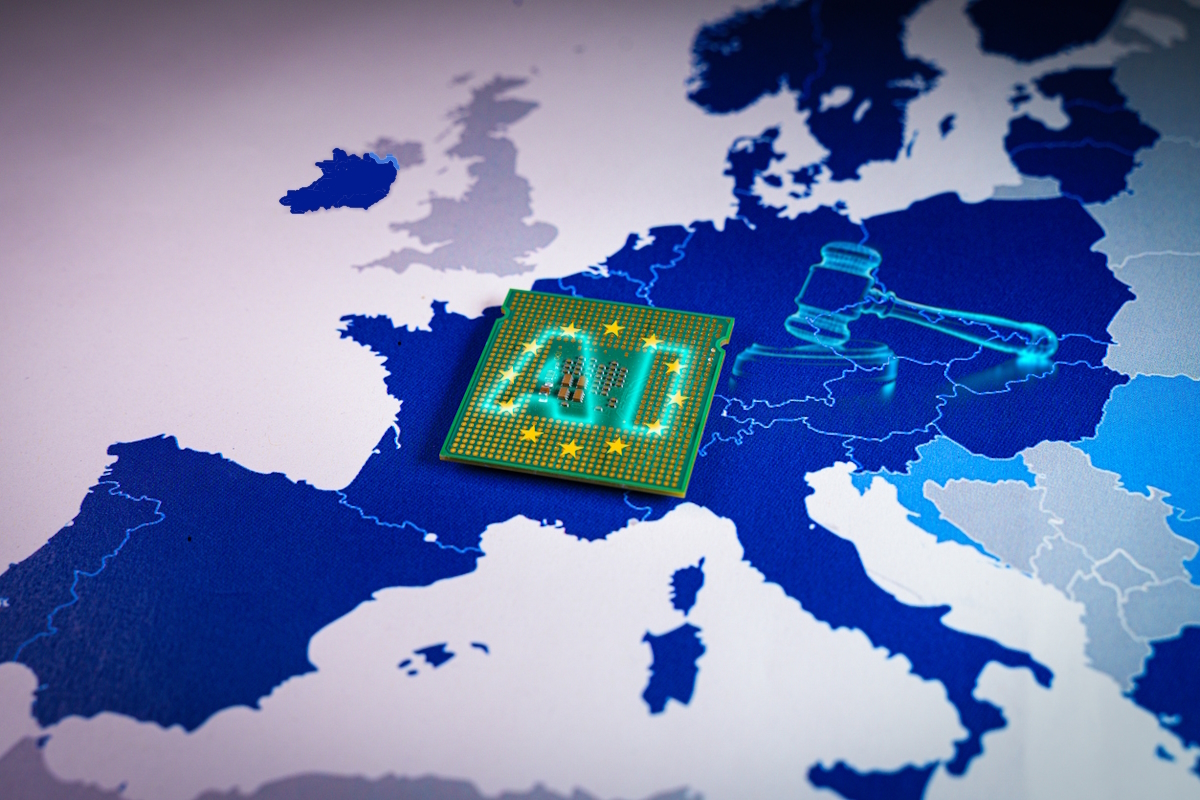Empowering marketers with the AI Act

Joanna Milliken at SAP Emarsys argues that marketers should welcome the EU’s AI Act
With the rise of ChatGPT and Generative AI, everyone’s suddenly become very excited about the potential of artificial intelligence. In reality, many marketers have been working with AI for years — in the case of my own organisation, it’s been more than a decade.
From automating processes to personalising experiences – from deploying chatbots to enhancing customer interactions – AI is playing a critical role for today’s marketers. Given AI’s potential for positive business impact, it’s no wonder that some marketers have been nervous about the EU’s plans to regulate, and potentially restrict, AI.
For those who haven’t been following this story in depth, earlier this year the European Union passed its landmark AI Act, one of the most far-reaching pieces of legislation ever adopted on the use (and misuse) of artificial intelligence. The new Act provides a framework for AI development, including demanding greater transparency, ensuring human oversight, and in some cases banning AI applications outright if they carry unacceptable risks.
It’s a big change for the tech world, but also for marketers who are anticipating a level of transformation, and disruption, harkening back to the early days of GDPR.
But should marketers really be worried? While GDPR had its teething problems, the ultimate result has been more ethical marketers providing better experiences for customers. Personally, I believe the EU AI Act will be a similar story.
Innovation through regulation
As is so often the case with new legislation, one of the biggest worries has been that the EU AI Act will stifle innovation. In fact, one Forbes columnist went as far as to call it Europe’s “innovation killer”. Personally, I think the opposite is true.
To me, this legislation isn’t just about setting rules; it’s about inspiring a shift in how brand marketers approach innovation. If anything, it will open up rather than restrict the adoption of AI.
Some marketers have been hesitant to move forward and experiment with AI, often from a fear of misusing customer data or exposing their intellectual property. By providing clear guidelines, the EU AI Act means that marketers and brands now know where the boundaries are and how to operate safely and effectively within them. That’s a huge step forward, giving marketers confidence to experiment and will ultimately stimulate innovation.
Data protection
Another key concern that’s cropped up around AI implementation is transparency, and the use of customer data in AI applications — particularly using personal datasets to train AI.
The EU AI Act means that consent must be granted from the individuals concerned before using their data for AI training to ensure compliance. This is typically managed through clear, understandable consent forms or digital prompts that explain how the data will be used, the purpose of its use, and the implications of the data processing. It also mandates that data be handled responsibly and confidentially, preventing unauthorised sharing with third parties, like OpenAI.
This legislation aims to reassure marketers about using AI responsibly in terms of customer privacy but should also help consumers feel more comfortable with how AI is used. According to SAP Emarsys’ research into this topic, 70% of UK consumers express concern about marketers using their personal information for AI. And yet, more than a third are happy for marketers to adopt AI if it improves their customer experience.
With the EU AI Act in place, consumers can develop a better understanding of how brands use AI to improve their experiences, while feeling confident that their data is protected. All of this will help brands deliver on increasing high standards of customer experience. A win-win for all everyone involved.
Embracing the change
Things have continued to move at pace since the EU AI Act was introduced. Following some initial concerns and hesitations, marketers seem to be coming to terms with the changes — and even embracing them as a force for good.
According to our latest survey of over 250 UK marketers, nearly three-quarters (72%) say the legislation represents a significant step towards the responsible use of AI.
Four out of five marketers (84%) also say that they are confident that the EU AI Act won’t hinder their ability to innovate. Even more importantly, 71% believe the act will improve consumer trust in marketing and brands, while 79% say it will help to protect their brands in future.
And that’s the real point. This legislation isn’t something we have to ‘adapt to’ or even work around, it safeguards the incredible opportunity AI gives us to innovate and enhance our marketing, our customers’ experiences and our businesses.
Ultimately, the EU AI Act paves the way for all of us to adopt powerful — and responsible — AI technologies. As AI and marketing join ever closer together, this type of regulation will continue to be essential.
It’s not just about regulation and compliance. It’s about committing to a future where technology serves customers with real value, while providing integrity and transparency. That’s a future we should all want to embrace.
Joanna Milliken is CEO at SAP Emarsys
Main image courtesy of iStockPhoto.com and Tanaonte

Business Reporter Team
Most Viewed
Winston House, 3rd Floor, Units 306-309, 2-4 Dollis Park, London, N3 1HF
23-29 Hendon Lane, London, N3 1RT
020 8349 4363
© 2025, Lyonsdown Limited. Business Reporter® is a registered trademark of Lyonsdown Ltd. VAT registration number: 830519543





